Top 7 Health Benefits of Ginseng
Ginseng has been utilized for generations in traditional Chinese medicine. Depending on how long it has been cultivated, this slow-growing, small plant with ... read more...fleshy roots can be classed as fresh, white, or red. Fresh ginseng is collected before the age of four, while white ginseng is gathered between the ages of four and six, and red ginseng is harvested after the age of six or older. Ginseng includes two important substances: ginsenosides and gintonin. These substances work together to produce health advantages. Read on for more information.
-
Ginseng contains anti-inflammatory and antioxidant effects. In vitro studies have revealed that ginseng extracts and ginsenoside components can reduce inflammation and boost antioxidant activity in cells. One test-tube research, for example, discovered that Korean red ginseng extract decreased inflammation and enhanced antioxidant activity in eczema skin cells. The results in people are also promising.
In one study, 18 young male athletes were given 2 grams of Korean red ginseng extract three times each day for seven days. Following an activity test, the men's levels of various inflammatory markers were measured. These levels were considerably lower in the placebo group and lasted up to 72 hours following testing. However, because the placebo group received a different medicinal plant, these findings should be interpreted with caution, and additional research is required. Finally, in bigger research, 71 postmenopausal women were given 3 grams of red ginseng or a placebo every day for 12 weeks. Following that, antioxidant activity and oxidative stress indicators were assessed. Researchers concluded that red ginseng may help reduce oxidative stress by increasing antioxidant enzyme activities.
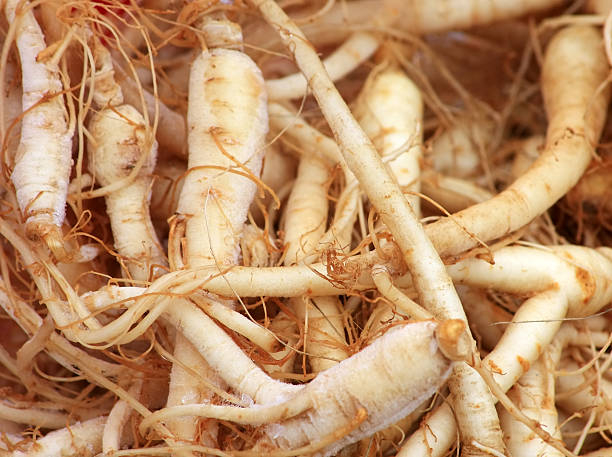
Potent Antioxidant That May Reduce Inflammation 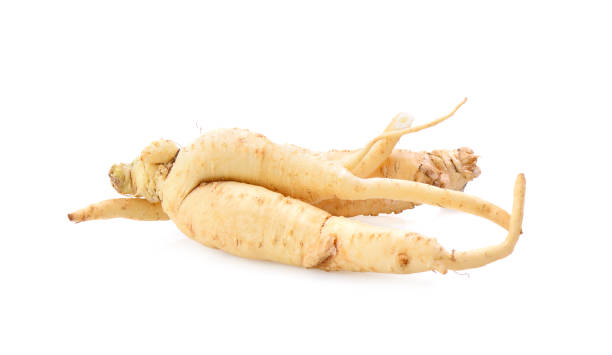
Potent Antioxidant That May Reduce Inflammation -
Ginseng may aid to boost brain functions such as memory, behavior, and mood. Some animal and test-tube studies suggest that ginseng components such as ginsenosides and compound K may protect the brain from free radical damage. For four weeks, 30 healthy persons were given 200 mg of Panax ginseng every day. They improved their mental health, social functioning, and mood at the end of the trial. However, these advantages ceased to be substantial after 8 weeks, suggesting that the effects of ginseng may diminish with prolonged usage.
Another research looked at how single doses of Panax ginseng (200 or 400 mg) influenced mental performance, exhaustion, and blood sugar levels in 30 healthy people before and after a 10-minute mental test. The 200-mg dosage was more beneficial than the 400-mg dose in enhancing mental performance and weariness during the test. Ginseng may have aided in the absorption of blood sugar by cells, perhaps improving performance and reducing mental tiredness. However, it is unclear why the lesser dose outperformed the greater one. In a third trial, 400 mg of Panax ginseng taken daily for eight days enhanced serenity and arithmetic skills. What’s more, other studies found positive effects on brain function and behavior in people with Alzheimer’s disease.
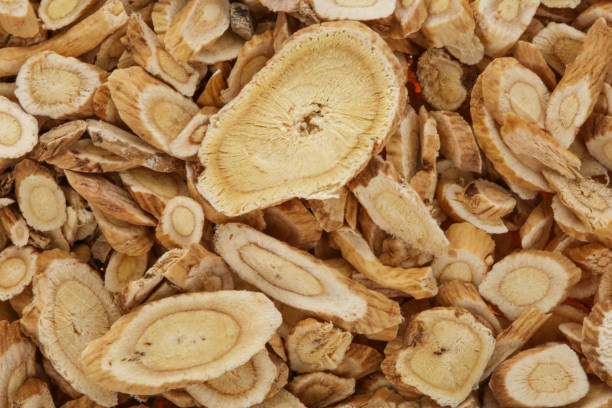
Benefit Brain Function 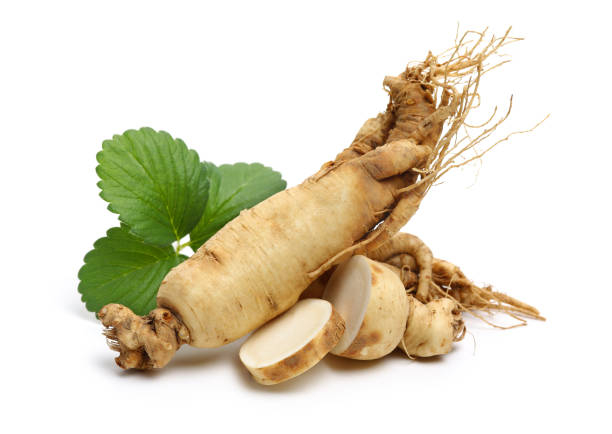
Benefit Brain Function -
Ginseng has been found in studies to be an effective therapy for erectile dysfunction (ED) in males. It appears that the substances in it may assist restore normal function by protecting blood vessels and tissues in the penis from oxidative stress. Furthermore, studies have indicated that ginseng may boost the synthesis of nitric oxide, a chemical that promotes muscular relaxation and blood circulation in the penis.
According to one study, males treated with Korean red ginseng showed a 60% improvement in ED symptoms, compared to a 30% improvement induced by an ED medication. Furthermore, another study found that ingesting 1,000 mg of aged ginseng extract for 8 weeks improved erectile performance and overall satisfaction in 86 men with ED. More research is needed, however, to make firm conclusions on the benefits of ginseng on ED.
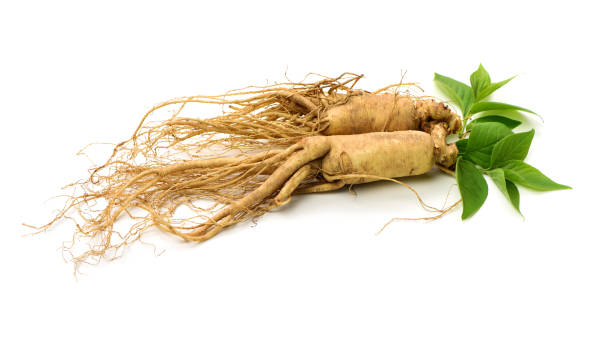
Could Improve Erectile Dysfunction 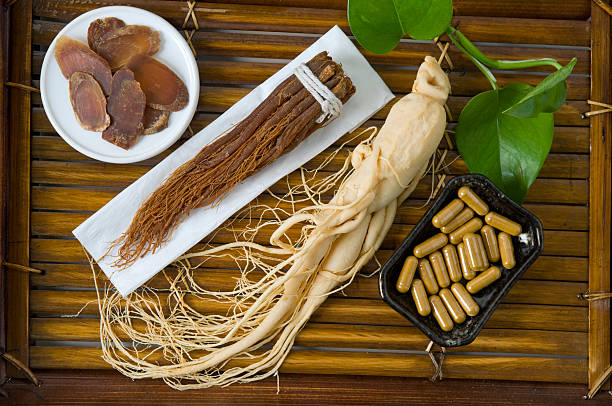
Could Improve Erectile Dysfunction -
Ginseng may help to boost the immune system. Some investigations on its immune system effects have focused on cancer patients undergoing surgery or chemotherapy. One research followed 39 persons recuperating from stomach cancer surgery for two years, giving them 5,400 mg of ginseng daily. Surprisingly, these folks improved their immunological systems and had fewer recurrences of symptoms. Another research looked at how red ginseng extract affected immune system indicators in persons with advanced stomach cancer who were taking post-surgery chemotherapy. Those who took red ginseng extract exhibited improved immune system indicators after three months than those in the control or placebo groups.
Furthermore, one study found that those who take ginseng had a 35% higher probability of living disease-free for five years following curative surgery and a 38% higher survival rate than those who do not. It appears that ginseng extract may also improve the effectiveness of immunizations against illnesses such as influenza. Even though these trials reveal increases in immune system indicators in cancer patients, additional study is needed to verify ginseng's usefulness in improving infection resistance in healthy persons.
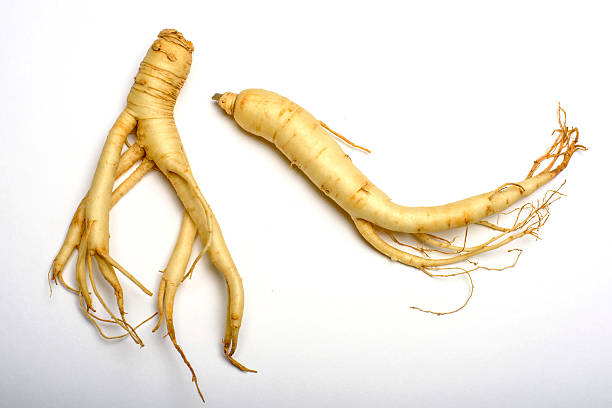
May Boost the Immune System 
May Boost the Immune System -
Ginseng may help to lower the risk of some malignancies. This herb's ginsenosides have been found to decrease inflammation and provide antioxidant protection. The cell cycle is the regular process through which cells develop and divide. Ginsenosides may help this cycle by inhibiting aberrant cell development and production. According to an analysis of multiple research, those who take ginseng may have a 16% decreased chance of acquiring cancer. Furthermore, observational research found that persons who take ginseng may be less likely to acquire cancers such as lip, mouth, esophagus, stomach, colon, liver, and lung cancer than those who do not.
Ginseng may also assist improve the health of chemotherapy patients by reducing adverse effects and increasing the effectiveness of some treatment medications. While research on ginseng's involvement in cancer prevention reveals some advantages, they are equivocal.
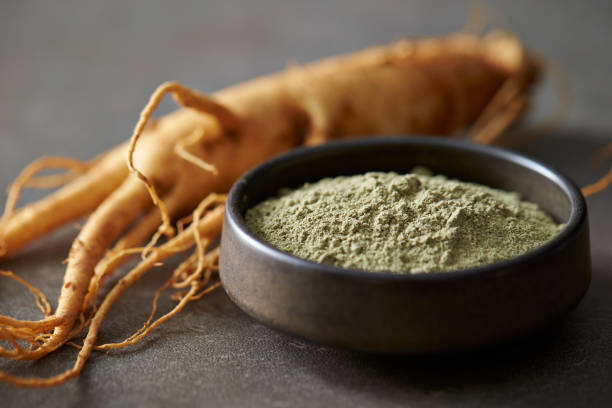
May Have Potential Benefits Against Cancer 
May Have Potential Benefits Against Cancer -
Ginseng has been demonstrated to aid in tiredness relief and energy production. Several animal studies have connected various ginseng components, such as polysaccharides and oligopeptides, to decreased oxidative stress and increased energy synthesis in cells, which may aid in tiredness management. One four-week trial looked at the impact of providing 90 persons with chronic tiredness with 1 or 2 grams of Panax ginseng or a placebo. That given Panax ginseng had less physical and mental weariness, as well as lower levels of oxidative stress than those given a placebo.
In another trial, 364 cancer survivors suffering exhaustion were given either 2,000 mg of American ginseng or a placebo. The ginseng group showed considerably lower tiredness levels after eight weeks than the placebo group. Furthermore, a meta-analysis of over 155 research found that ginseng supplements may not only aid with fatigue but also improve physical activity.
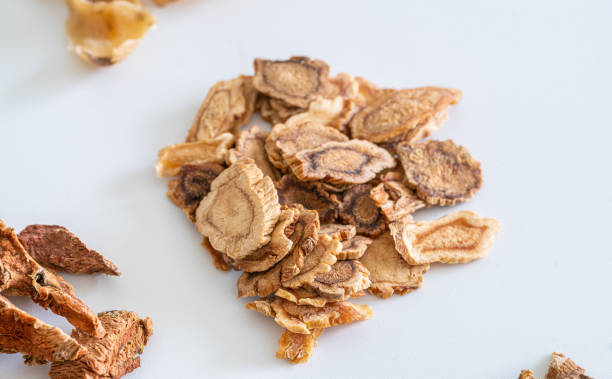
May Fight Tiredness and Increase Energy Levels 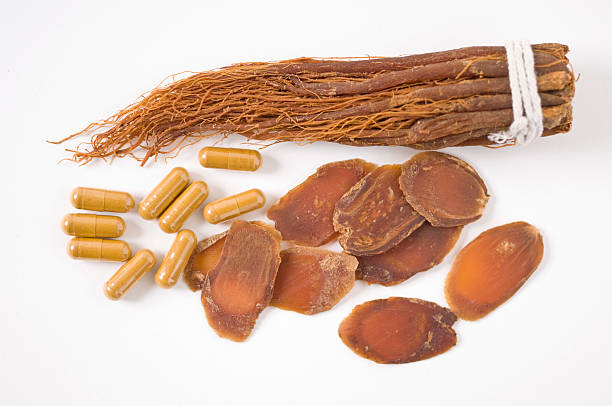
May Fight Tiredness and Increase Energy Levels -
Ginseng appears to help persons with and without diabetes regulate their blood glucose levels. American and Asian ginseng has been found to improve pancreatic cell function, increase insulin synthesis, and improve blood sugar uptake in tissues. Furthermore, research demonstrates that ginseng extracts benefit by providing antioxidant protection that reduces free radicals in diabetic cells. In one research, 19 persons with type 2 diabetes were given 6 grams of Korean red ginseng along with their normal diabetes medicine or diet.
Surprisingly, they maintained good blood sugar control throughout the 12-week research. They also exhibited 11% lower blood sugar levels, 38% lower fasting insulin, and 33% higher insulin sensitivity. Another study found that American ginseng improved improve blood sugar levels following a sweet drink test in 10 healthy participants. Fermented red ginseng appears to be considerably more efficient in blood sugar regulation. Fermented ginseng is created using live bacteria that convert the ginsenosides into a more readily absorbed and powerful form. For instance, one research found that eating 2.7 grams of fermented red ginseng daily was helpful in decreasing blood sugar and raising insulin levels following a test meal.

Could Lower Blood Sugar 
Could Lower Blood Sugar




























